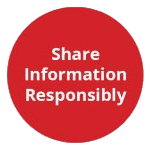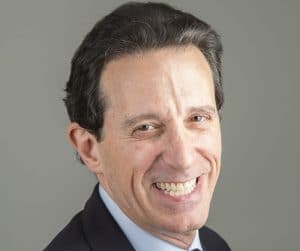Pledge your Commitment to the Participatory Medicine Manifesto
Having an amazing community is what led to creating a manifesto, a statement of what we at the Society for Participatory Medicine (SPM) believe, and how to put those beliefs into practice and transform the culture of healthcare!
We had input from dozens of people in co-creating the manifesto: conference attendees at the Society’s annual conference in 2018, the board, members on Connect, and many more people. We couldn’t have gotten where we did without everyone’s involvement.
Pledge your commitment to the Manifesto, and share it widely on social media, with your friends and family and with your organization.
There are three parts to the Manifesto.
- The manifesto itself, what we believe in one paragraph
- The highest level areas that we agree to focus on.
- Most importantly, are the “I Will” statements that we created based on everyone’s input. These are the key, they are what makes this more than a piece of paper. These are the things that we hope everyone agrees to take on. For example, As a Patient, I will be prepared to share my story and experiences completely, accurately, and honestly.
Thinking about pledging?
The Society for Participatory Medicine Manifesto
Together we are reimagining the dynamics of healthcare.
Our goal is to empower and embolden patients, healthcare professionals and caregivers by spreading the practice of participatory medicine. Our movement will shake up the system to create a collaborative, inclusive, compassionate and mutually respectful healthcare environment.
I pledge my commitment to the Participatory Medicine Manifesto and promise to do the following:
As a healthcare professional I will:
As a patient or caregiver I will:
- Acknowledge that my patients are the experts on their own life, body, and mind
- Use plain language for clear and accurate communication
As a healthcare professional I will:
- Acknowledge that my patients are the experts on their own life, body, and mind
- Use plain language for clear and accurate communication

- Be prepared to share my story and experiences completely, accurately, and honestly
- Ask questions of healthcare professionals and voice my concerns
As a patient or caregiver I will:
- Be prepared to share my story and experiences completely, accurately, and honestly
- Ask questions of healthcare professionals and voice my concerns
- Respect patient perspectives based on culture, upbringing, and circumstances
- Encourage my patients to be honest by being respectful and non-judgmental
As a healthcare professional I will:
- Respect patient perspectives based on culture, upbringing, and circumstances
- Encourage my patients to be honest by being respectful and non-judgmental

- Take the time to make sure I understand what my healthcare professionals are telling me
- Respect my loved one’s wishes about sharing information and gathering research
As a patient or caregiver I will:
- Take the time to make sure I understand what my healthcare professionals are telling me
- Respect my loved one’s wishes about sharing information and gathering research
- Help my patients access and understand the information they need to engage in their care
- Acknowledge that patients have an absolute right to data about their health
As a healthcare professional I will:
- Help my patients access and understand the information they need to engage in their care
- Acknowledge that patients have an absolute right to data about their health

- Remember that my healthcare professionals need information from me to personalize my care
- Acknowledge that I have an absolute right to data about my health
As a patient or caregiver I will:
- Remember that my healthcare professionals need information from me to personalize my care
- Acknowledge that I have an absolute right to data about my health
- Be honest and clear with patients even when something is difficult to explain in lay terms
- Encourage my patients to do their own research and become involved in health communities
As a healthcare professional I will:
- Be honest and clear with patients even when something is difficult to explain in lay terms
- Encourage my patients to do their own research and become involved in health communities

- Be truthful with healthcare professionals, even when it’s uncomfortable
- Advocate for myself or my loved one by questioning healthcare professionals
As a patient or caregiver I will:
- Be truthful with healthcare professionals, even when it’s uncomfortable
- Advocate for myself or my loved one by questioning healthcare professionals
- Treat my patients and their caregivers like partners, peers, and collaborators
- Learn and respect patient goals, values, and preferences
As a healthcare professional I will:
- Treat my patients and their caregivers like partners, peers, and collaborators
- Learn and respect patient goals, values, and preferences

- Play an active role on the care team as a patient or caregiver
- Reach out to other caregivers for help and take care of myself so I can take care of others
As a patient or caregiver I will:
- Play an active role on the care team as a patient or caregiver
- Reach out to other caregivers for help and take care of myself so I can take care of others
Easy ways to share the Manifesto
The Participatory Medicine Manifesto is a document that you can share, you can post on social media, and you can use to explaining how we think and why we exist. And maybe you’ve thought of something we haven’t. In that case please email us at manifesto@participatorymedicine.org.


The Participatory Medicine Manifesto by the Society for Participatory Medicine is licensed under CC BY-NC-ND 4.0.
Revisions: 4-Mar-2022: Under “Share Information Responsibly,” the original healthcare professional statement was changed from “Acknowledge that patients own and have an absolute right to data about their health” to “Acknowledge that patients have an absolute right to data about their health.” The patient/caregiver statement was changed from “Acknowledge that I own and have an absolute right to data about my health” to “Acknowledge that I have an absolute right to data about my health.”
